“Gentlemen, for what came ye into the wilderness? Not for conventional scholastic training; not for ranch life; not to become proficient in commercial or professional pursuits for personal gain. You came to prepare for a life of service, with the understanding that superior ability and generous purpose would be expected of you.”
Located on an isolated desert ranch, east of California’s Sierra Nevada mountain range, Deep Springs is an all-male, liberal arts college founded a century ago by Lucien Lucius Nunn. The entrepreneur, who with his brother built the power station at Niagara Falls, devoted the last two decades of his life to what The New Yorker describes as “a novel form of education, an anomalous admixture of Christian mysticism, imperialist élitism, Boy Scout-like abstinence, and Progressive era learning-by-doing, with an emphasis on self-governance, leadership training, and the formation of strong character”.
Nunn’s thinking culminated with the “three pillars” on which Deep Springs was founded – “academics, labour, and self- government”. The ‘cowboy scholars’ study literature and philosophy alongside putting in 20 hours of hard labour on the ranch. To this day, it remains America’s smallest higher education institute, accepting no more than 30 students, some of whom will be young women, if the college can overcome the final hurdles of a legal challenge to prevent its decision to go coeducational.
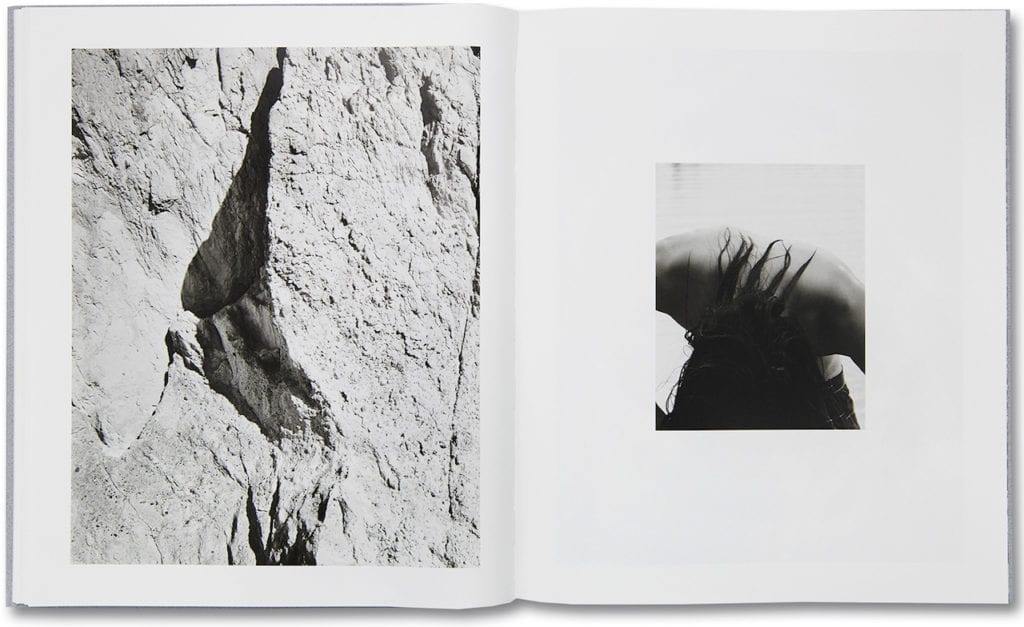
All images from Deep Springs © Sam Contis, courtesy of Mack 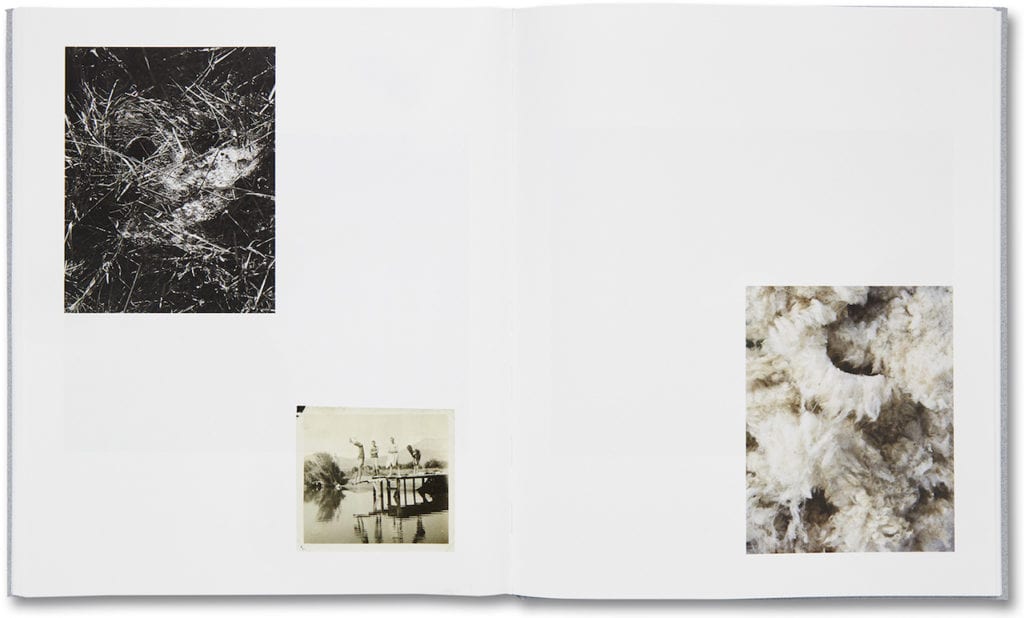
All images from Deep Springs © Sam Contis, courtesy of Mack
Contis seeks out her own take on the nobility of this harsh landscape, so central to America’s Californihistorical sense of national identity, finding a corporeal beauty that is echoed in her sensuous photographs of the young men at work together or alone in moments of rest or self-reflection. She offers up an uncommonly tender view of masculine youth, ready and willing to be nurtured into useful purpose, as the land.
The book opens with a small picture of a triangular-shaped crevice in a rock face, echoed in a photograph of Deep Springs Valley torn out of a scrapbook made a century before. In between, barely registered, a student wrestles with cattle, obscured by a cloud of dust. The book continues with a large plate across the fold capturing the desolate dust bowl, breaking into a succession of views, printed big and small, that navigate the students’ habitat, moving between tender details and gestures, and wide, snow-capped expanse.
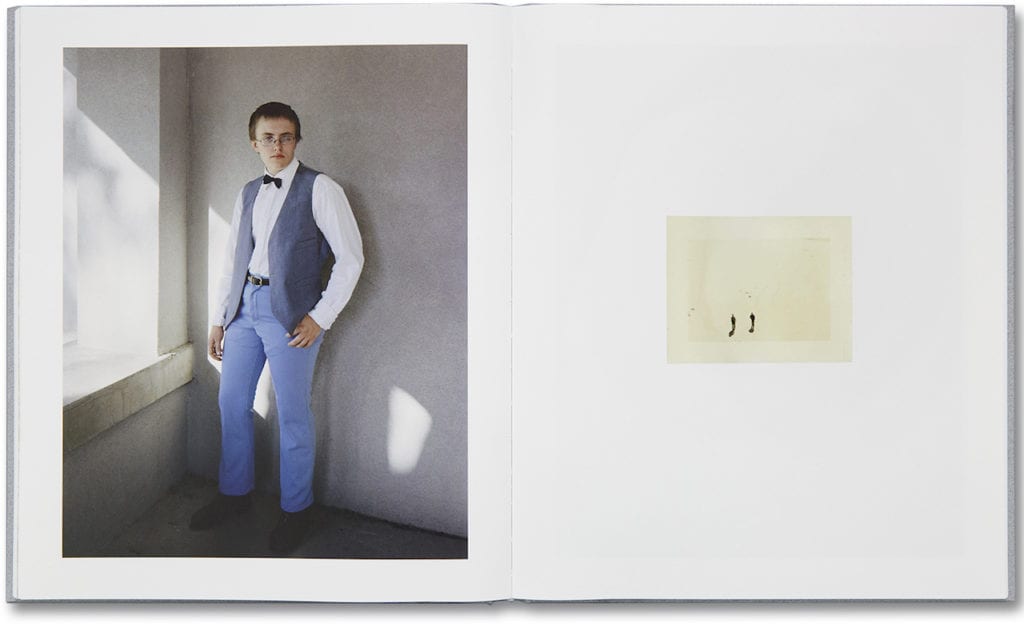
All images from Deep Springs © Sam Contis, courtesy of Mack
Deep Springs is a classic Michael Mack book, giving a young, relatively unknown photographer the opportunity to make their first book without compromise, from the obscure cover to the lack of text, allowing the images to work their magic through their poetic interplay and unconventional sequencing. To say it’s one of the most visually sophisticated and conceptually complete books to emerge from Mack is of course a huge compliment to Sam Contis, whose works travels in such well charted territory, yet points us towards unforeseen directions.
“The desert has a deep personality; it has a voice,” wrote Nunn in 1923, six years after setting up Deep Springs, and two years before his death. “Great leaders in all ages have sought the desert and heard its voice. You can hear it if you listen, but you cannot hear it while in the midst of uproar and strife for material things.”
Sam Contis is signing copies of Deep Spring at Paris Photo at 3pm, 11th November on the MACK stand https://programme.parisphoto.com/en/book-signings.htm and talking at Paris Photo at 2.30pm, 12 November in The Eyes’ artists’ talks programme https://programme.parisphoto.com/en/artists-talks-by-the-eyes-magazine.htm
https://programme.parisphoto.com/en/photobook-awards.htm
Deep Springs by Sam Contis is published by Mack Books, priced €40.00 www.mackbooks.co.uk samanthacontis.com
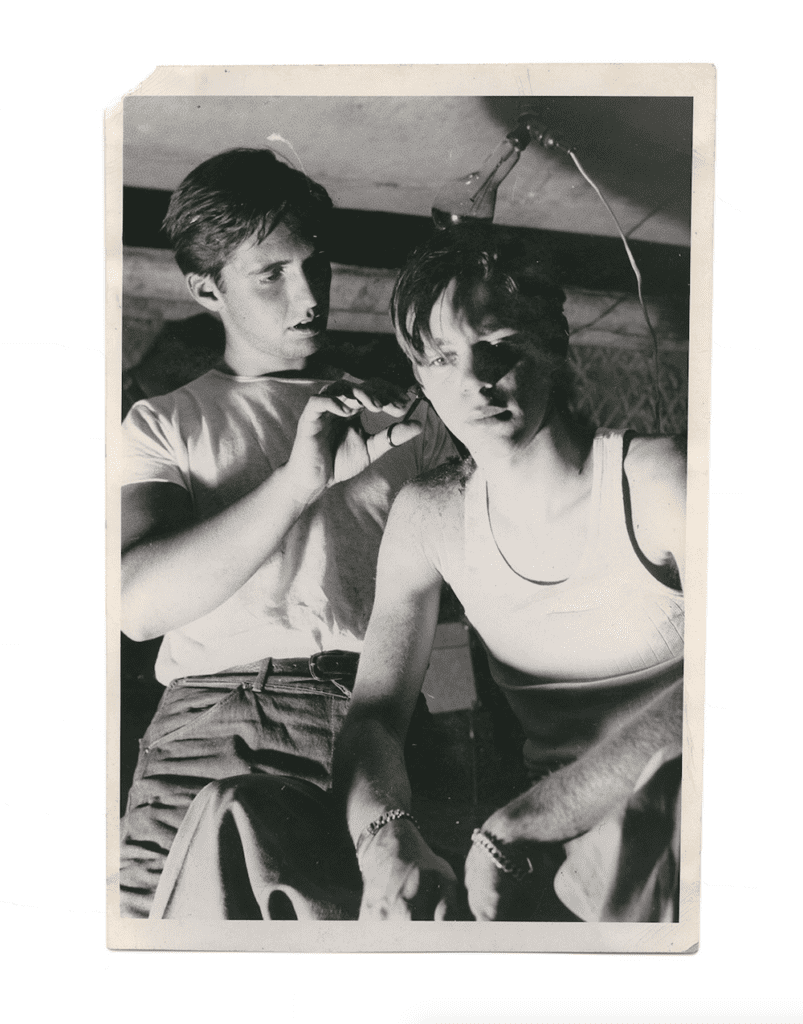
All images from Deep Springs © Sam Contis, courtesy of Mack 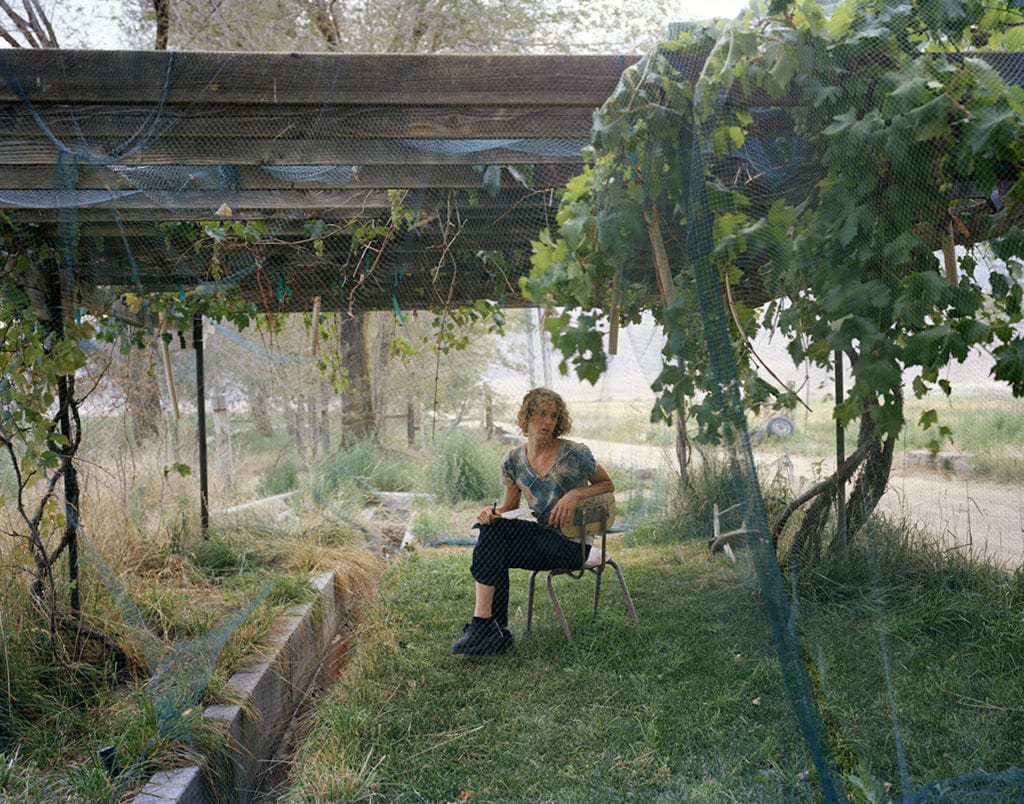
All images from Deep Springs © Sam Contis, courtesy of Mack
Located on an isolated desert ranch, east of California’s Sierra Nevada mountain range, Deep Springs is an all-male, liberal arts college founded a century ago by Lucien Lucius Nunn. The entrepreneur, who with his brother built the power station at Niagara Falls, devoted the last two decades of his life to what The New Yorker describes as “a novel form of education, an anomalous admixture of Christian mysticism, imperialist élitism, Boy Scout-like abstinence, and Progressive era learning-by-doing, with an emphasis on self-governance, leadership training, and the formation of strong character”.
Nunn’s thinking culminated with the “three pillars” on which Deep Springs was founded – “academics, labour, and self- government”. The ‘cowboy scholars’ study literature and philosophy alongside putting in 20 hours of hard labour on the ranch. To this day, it remains America’s smallest higher education institute, accepting no more than 30 students, some of whom will be young women, if the college can overcome the final hurdles of a legal challenge to prevent its decision to go coeducational.


Contis seeks out her own take on the nobility of this harsh landscape, so central to America’s Californihistorical sense of national identity, finding a corporeal beauty that is echoed in her sensuous photographs of the young men at work together or alone in moments of rest or self-reflection. She offers up an uncommonly tender view of masculine youth, ready and willing to be nurtured into useful purpose, as the land.
The book opens with a small picture of a triangular-shaped crevice in a rock face, echoed in a photograph of Deep Springs Valley torn out of a scrapbook made a century before. In between, barely registered, a student wrestles with cattle, obscured by a cloud of dust. The book continues with a large plate across the fold capturing the desolate dust bowl, breaking into a succession of views, printed big and small, that navigate the students’ habitat, moving between tender details and gestures, and wide, snow-capped expanse.

Deep Springs is a classic Michael Mack book, giving a young, relatively unknown photographer the opportunity to make their first book without compromise, from the obscure cover to the lack of text, allowing the images to work their magic through their poetic interplay and unconventional sequencing. To say it’s one of the most visually sophisticated and conceptually complete books to emerge from Mack is of course a huge compliment to Sam Contis, whose works travels in such well charted territory, yet points us towards unforeseen directions.
“The desert has a deep personality; it has a voice,” wrote Nunn in 1923, six years after setting up Deep Springs, and two years before his death. “Great leaders in all ages have sought the desert and heard its voice. You can hear it if you listen, but you cannot hear it while in the midst of uproar and strife for material things.”
Sam Contis is signing copies of Deep Spring at Paris Photo at 3pm, 11th November on the MACK stand https://programme.parisphoto.com/en/book-signings.htm and talking at Paris Photo at 2.30pm, 12 November in The Eyes’ artists’ talks programme https://programme.parisphoto.com/en/artists-talks-by-the-eyes-magazine.htm
https://programme.parisphoto.com/en/photobook-awards.htm
Deep Springs by Sam Contis is published by Mack Books, priced €40.00 www.mackbooks.co.uk samanthacontis.com



